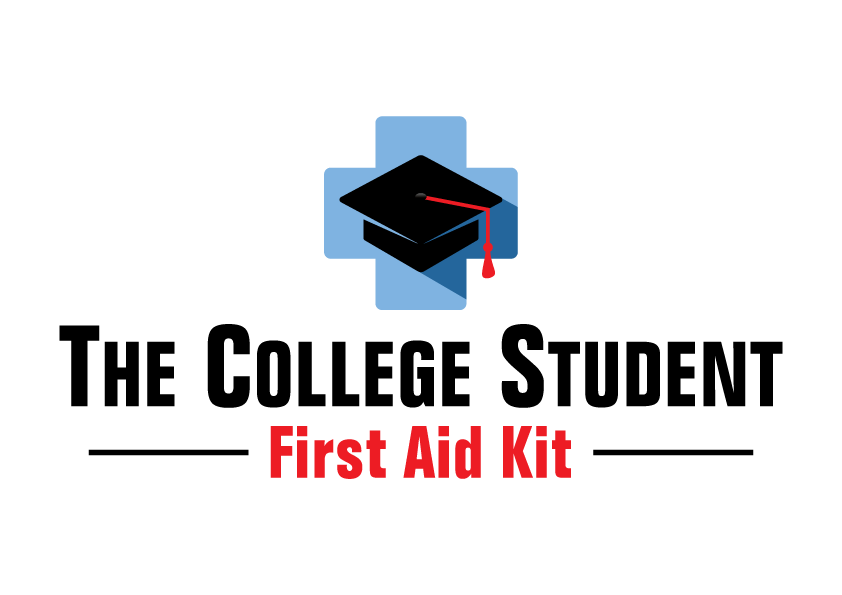So, you got into your first-choice college (76% of you did)
Over half of you benefitted from at least one AP class in high school
You’re a lot less likely to drink or smoke than your parents- about 40% fewer students today than in 1981
Attributes like academic reputation, graduate school opportunities and good jobs for graduates were major factors in deciding on your school
14% of you chose a college at least 500 miles away from home
46.5% of you will admit to frequently or occasionally falling asleep in class
And here you are!
College First Aid Kit wants you to thrive in your first year of college (actually, ALL your years). For many of you, it’s the first extended time away from home, a time when it dawns on you just how much your parents did for you. You’re on your own with that laundry basket! You’re trying to figure out how to “adult” in the real world and you’ve got questions. Hopefully the following 16 tips for incoming freshmen will help you get some answers…
16 Tips for College Freshmen
1. Don’t be ashamed of that campus map. Take a walk the day before you have your first class in that building on the other side of campus to work out the best route from door to door.
2. Invest yourself in relationships with your roommate(s) and the people in your residence hall. Shy people, you can’t hide forever, so go to that ice cream social and meet at least one new person. Not-shy people: we know you have no trouble with this. Your problem will be involving yourself in too many clubs, sports, parties and events, and not annoying your less gregarious roommate.
3. Spend time organizing. Though it might seem less important than actually doing your schoolwork, a half hour of planning and prioritizing can save hours later.
4. Take pains to find YOUR study spot. There are so many nooks, crannies, coffee shops, library carrels, outdoor tables on your campus. Experiment to find your personal fountain of focus and creativity
5. Go to Class. Duh, that’s why you’re here, right? Every so often there’s no question that an occasional skipped class is necessary, but you or your parents are paying for this opportunity. Try breaking down your tuition plus room and board cost per class hour and you’re in for a shock. Plus, you just never know when the prof will make some change to the syllabus and forget to update it online.
6. Master the syllabus for each class. KNOW what’s expected and when it’s due. None of this “I didn’t know…” excuse. Doesn’t work in college. Also- each of your teachers has idiosyncrasies, so study them along with the class material. Get your inner Sherlock Holmes on so you can meet his or her expectations.
7. If possible, get to at least one set of office hours for each class. You can’t imagine the dividends it will pay if you simply stop in to say hello or ask a simple question of the prof or TA. It speaks volumes about your interest in the class and education in general.
8. Give yourself time and space to consider your future after college. Go to the career center for help- their job is to make the college look good by getting you a great job or grad school after you graduate. And don’t be afraid to change your major. There’s help for that as well.
9. Find at least one ally in every class, someone you can communicate with about the material, work together with, process difficult material, etc.
10. Find healthy ways to deal with homesickness. Leaving home can be difficult, even for those couldn’t wait to get out of there. Maybe it would be nice to actually call or Skype someone back home instead of texting!
11. Stay away from those Student Credit Cards. You know the signups are everywhere, but don’t fall for it. Your student loans will be hard enough to pay back without adding credit card debt. Simple: “Don’t’ spend it unless ya got it.” There are some great alternatives to regular credit cards out there, so before you fill out that application to get a free t-shirt, do your research.
12. Keep a list of resume-worthy activities, honors, classes and experiences you are having. This will also help you to keep focused on your future and say no to some things and yes to others. A LinkedIn profile is a great way to do this.
13. Buy books online or at the used textbook store. Go there first, as soon as you can get the list of materials for your next semester. There are many other options like renting textbooks from places like Chegg or Amazon.
14. And speaking of buying stuff, There are a lot of manufacturers of dorm-size furnishings from bed-toppers to bookshelves, and it’s priced for the low-budget student. For ideas, try this dorm furnishings purveyor, Dormco.com
15. Ear Plugs may become your new best friends. Those soft, squishy sound killers may be the only things between you and finishing that paper on time when it’s party night for the neighbors. A good pair of noise canceling headphones will also do the trick.
16. Your study skills are probably already OK, but they can always use sharpening. Speed reading, best practices based on brain research, and other efficiency techniques will really help with most of your classes. Of course the best way to keep from cramming is to simply prioritize keeping up with all your work week by week. Finals week can either be hell or happiness depending on the choices you’ve made all semester long.
That’s probably enough advice for one go, except for one thing. Consider a College First Aid Kit to eliminate any concerns about having the right kind of medical items along with you. All the tips for incoming freshmen in the world won’t mean a thing unless you’ve got the supplies needed to take care of yourself.

